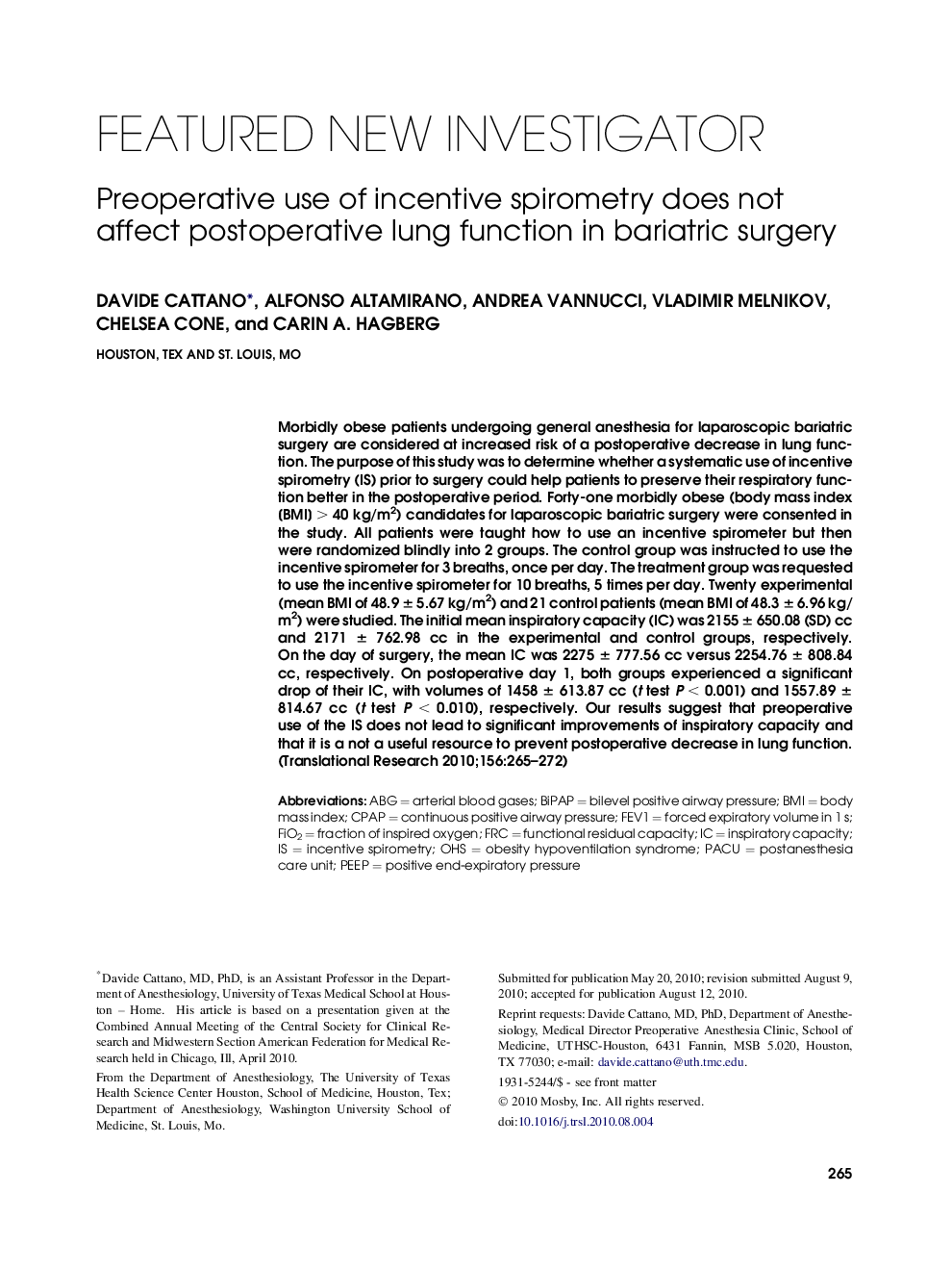| Article ID | Journal | Published Year | Pages | File Type |
|---|---|---|---|---|
| 3840848 | Translational Research | 2010 | 8 Pages |
Morbidly obese patients undergoing general anesthesia for laparoscopic bariatric surgery are considered at increased risk of a postoperative decrease in lung function. The purpose of this study was to determine whether a systematic use of incentive spirometry (IS) prior to surgery could help patients to preserve their respiratory function better in the postoperative period. Forty-one morbidly obese (body mass index [BMI] > 40 kg/m2) candidates for laparoscopic bariatric surgery were consented in the study. All patients were taught how to use an incentive spirometer but then were randomized blindly into 2 groups. The control group was instructed to use the incentive spirometer for 3 breaths, once per day. The treatment group was requested to use the incentive spirometer for 10 breaths, 5 times per day. Twenty experimental (mean BMI of 48.9 ± 5.67 kg/m2) and 21 control patients (mean BMI of 48.3 ± 6.96 kg/m2) were studied. The initial mean inspiratory capacity (IC) was 2155 ± 650.08 (SD) cc and 2171 ± 762.98 cc in the experimental and control groups, respectively. On the day of surgery, the mean IC was 2275 ± 777.56 cc versus 2254.76 ± 808.84 cc, respectively. On postoperative day 1, both groups experienced a significant drop of their IC, with volumes of 1458 ± 613.87 cc (t test P < 0.001) and 1557.89 ± 814.67 cc (t test P < 0.010), respectively. Our results suggest that preoperative use of the IS does not lead to significant improvements of inspiratory capacity and that it is a not a useful resource to prevent postoperative decrease in lung function.
